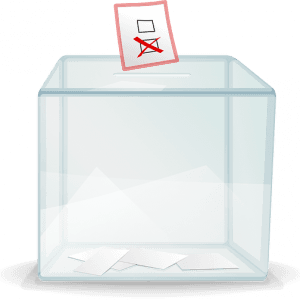The 2022 general election in Kenya is shaping up to be an interesting contest indeed. Old tribal alliances have already been dismantled in favour of newer, sleeker versions.
Like every other general election, the plight of the voter will not be considered until it is too late. But if anyone has cared to observe, violence and elections in Kenya – and the wider Africa – accompany pretty much every election.
The 2022 elections are trending towards the same direction of violence in and around Election Day. So today is as good a time as any to reflect on Kenyan elections.
At what point do you stop being internally displaced?
Our family was in the remote village of Kuresoi before the 2007 elections. We were forced to seek refuge elsewhere. We relocated first to the Central province, (where it is safer for people like us) and 3 years later, to the Nakuru town area.
We are still in Nakuru County – same as Kuresoi – but we feel safer because we live closer to the city.
In Nakuru, the reminder of the country’s grim brush with tribal warfare in 2007-8 is everywhere you look. A few kilometers from where I live, there is an IDP camp. These people, who were displaced by the 07/08 PEV, are still living in displacement 13 years later.
I don’t feel very different from them though. The experience of losing my childhood home was very jarring for me. Fourteen years later, I still harbor romantic sentiments of the old home in Kuresoi. And I fear that every other home I get will always pale in comparison.
Fourteen years later, many of us who are still living in displacement still live with one eye on politics. Every election time becomes another reminder of the terror we fled.
With each general election, you fear that all hell may break loose. Especially for those still living in conflict areas – the old friends we left behind.
You do everything you can to secure peace, even if the most you can do is talk about it. So here is my two cents about this whole electoral violence issue in Kenya.
A shared responsibility
The economy of Kenya slows down during every election year due to fears of electoral violence from the business community. And when the economy keeps slowing down every five years, all Kenyans suffer the same way.
It is in everyone’s best interest to facilitate a peaceful process come 2022.
The Government
As the shining star of the East African region, violence following every general election is a bad look on Kenya. The 5-year cycle of violence creates a very unfriendly business environment for serious investors.
Losses suffered during post-election violence amount to millions if not billions of shillings. This is needless waste that should be avoided at all costs if Kenya is to continue in its current upwards trajectory.
As the organizers of the general election, the government also has a responsibility towards the citizens of Kenya to ensure a free, fair, and peaceful election come 2022. And this duty holds regardless of the person holding the highest office of the land.
The politicians
Already implicated at the International Court of Justice, President Uhuru Kenyatta and Deputy President William Ruto have a lot to lose in a bloody general election. This time around, they are the respective principals of their respective camps.
Suffice it to say, being implicated in two bloody general elections would not look good on either of them.
However, the political landscape is not just about the big dogs. There are numerous other junior politicians with massive influence among their constituents. In some corners of the internet, the language has already started getting charged with tribe politics.
To ensure that the 2022 general elections are peaceful, we need to do better in monitoring hate speech. With social media now just as ubiquitous as the radio in 2007, everything should be done to make sure that it is not used to spread hate and fear before, during, or after the elections.
The business community
When a general election erupts in violence, the business community suffers the most. Business activity stops, premises are destroyed, and investors are scared off.
As an entrepreneur, it is very hard to plan your business around the electoral calendar. There are too many uncertainties and too many unknowns. Tribal instability is one of the main reasons why investors continue to shun some parts of the country.
The business community cannot continue to be a silent bystander to some of the serious issues facing Kenya. Entrepreneurship is all about solving human problems. It is time that Kenyan entrepreneurs became effective for Kenya in that regard.
The citizenry
Citizens suffer the most when electoral violence breaks out because they carry the wounds of war. Loss of limb, property, or life affects vast portions of the community on both sides of the conflict.
With every general election in Kenya, there is a new generation of internally displaced people. These are people we have all failed, due to our actions or inaction, in one way or another.
In that way, the worst impact of post-election violence is that it leaves everyone feeling partly complicit in the suffering of their fellow patriots. At the same time, tribal posturing means that the actions needed to bridge tribal disparities are never taken.
General electoral violence affects citizens of a country the worst by creating an endless cycle of violence. In some cases, a trap that citizens remain stuck in for decades.
Building cultural bridges
In all of this, tribal politics is the sole culprit responsible for violence. Our political leaders have perfected the art of manipulating deep-seated tribal resentments for their own political gain. So to ensure that the upcoming general election is peaceful, we must first destroy the notions we have been taught of tribe as a political construct. Let’s instead celebrate tribe as the cultural concept it really is.
Only when Kenyans start seeing each other as the brothers and sisters they really are will we be able to staunch the flow of electoral violence, stabilize the country, and steer it to a future we can all be proud of.
Also read: Talking Politics: Nerima Wako-Ojiwa on Why We Should All Be Concerned





